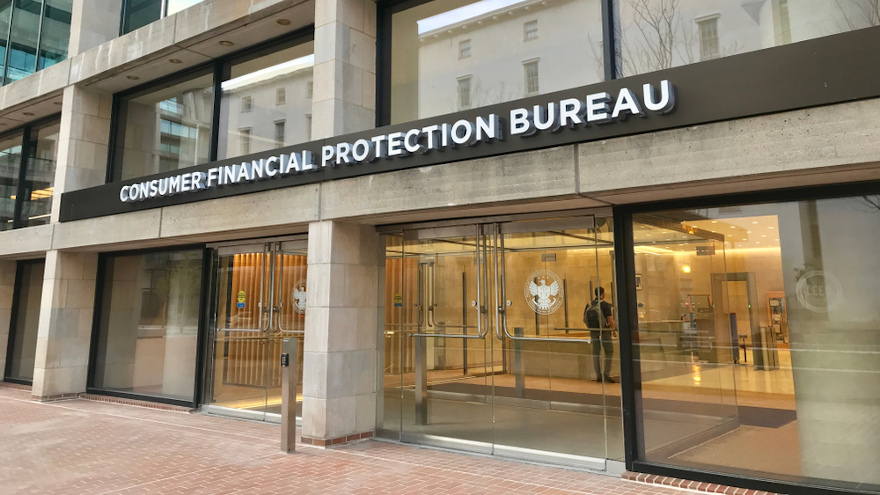4 immediate actions by acting CFPB director

Image by DCStockPhotography / Shutterstock.com
By subscribing, you agree to receive communications from Auto Remarketing and our partners in accordance with our Privacy Policy. We may share your information with select partners and sponsors who may contact you about their products and services. You may unsubscribe at any time.
Here’s perhaps a noticeable change of pace in the compliance and regulatory worlds.
Both the American Financial Services Association and the Consumer Bankers Association are eager to see what’s coming next from the Consumer Financial Protection Bureau. It all stems from director Rohit Chopra being removed over the weekend and President Trump installing Treasury Secretary Scott Bessent as acting director.
AFSA recapped that Bessent immediately ordered that the CFPB will:
—Halt movement on any proposed or final rules or guidance
—Suspend effective dates of rules
—Not advance investigations or enforcement actions
Subscribe to Auto Remarketing to stay informed and stay ahead.
By subscribing, you agree to receive communications from Auto Remarketing and our partners in accordance with our Privacy Policy. We may share your information with select partners and sponsors who may contact you about their products and services. You may unsubscribe at any time.
—Not publish public communications or reports
After Chopra shared on social media that his time as CFPB director had concluded, AFSA said via social media, “AFSA looks forward to working with new leadership at the CFPB to ensure American consumers are protected under a clear and certain set of rules put forward in a fair and transparent way to ensure a well-functioning financial marketplace for consumers and businesses alike.”
CBA president and CEO Lindsey Johnson also issued a statement about Bessent serving as acting director of the CFPB.
“On behalf of America’s leading retail banks, we’re pleased to see Secretary Bessent assume the role of CFPB Director on an acting basis,” Johnson said. “As an accomplished businessman, we’re hopeful that Secretary Bessent will take into account the real-world ramifications regulations have on America’s leading banks, the millions of consumers they serve, and the economy as a whole.
“There are a number of immediate actions Secretary Bessent can take to rescind the partisan policies the former CFPB director has taken that adversely affect consumers, and we stand ready to work with him to reset the CFPB,” she continued.
“We look forward to seeing who President Trump will choose to lead the CFPB on a permanent basis to restore trust and durability to the bureau,” Johnson went on to say.
CBA spelled out several suggestions in a whitepaper, breaking those recommendations into three categories.
Falling into what CBA called immediate regulatory corrections, the association urged:
—Repeal improperly issued guidance documents.
—Extend the effective date of the Overdraft Rule.
—Extend the effective date of the Credit Card Late Fee Rule.
—Extend the effective date of the Dodd Frank Act Section 1033 Rulemaking.
Falling within the category that the CBA designated as near-term administrative reforms, the association suggested that the CFPB institute standard agency staffing structure.
CBA closed with five recommendations within the category of long-term reforms, including:
—Review supervisory highlights, guidance, and enforcement activity for adherence to the Administrative Procedure Act (APA).
—Commit to conducting cost-benefit-analysis of all rulemakings on the impact of financial inclusion and risk-based pricing.
—Commit to aligning the CFPB’s use of its Unfair, Deceptive, and Abusive Acts and Practices (UDAAP) authorities with the Supreme Court’s clarification of the Federal Trade Commission’s Unfair Deceptive Acts and Practices authority.
—Commit to include counterparty review of press releases when settling enforcement and supervision voluntary commitments.
—Ensure consistent consumer protections and risk management for consumers across the industry.
“Policymakers must strike the appropriate balance and understand the consequences of more, and often redundant, regulation,” the CBA said in the whitepaper. “While promoting the safety and soundness of our banking system and consumer protections are critical imperatives, it is also essential to examine the consumer impact of each rule as well as how the unconsidered, cumulative impacts of regulation could threaten to push lending outside of the banking system to less regulated entities, and can add costs that are ultimately borne by consumers.
“This balance requires policymakers who are apolitically steadfast in their mission, operate within their statutory authority, and who base their regulation on facts and data,” the association went on to say.


